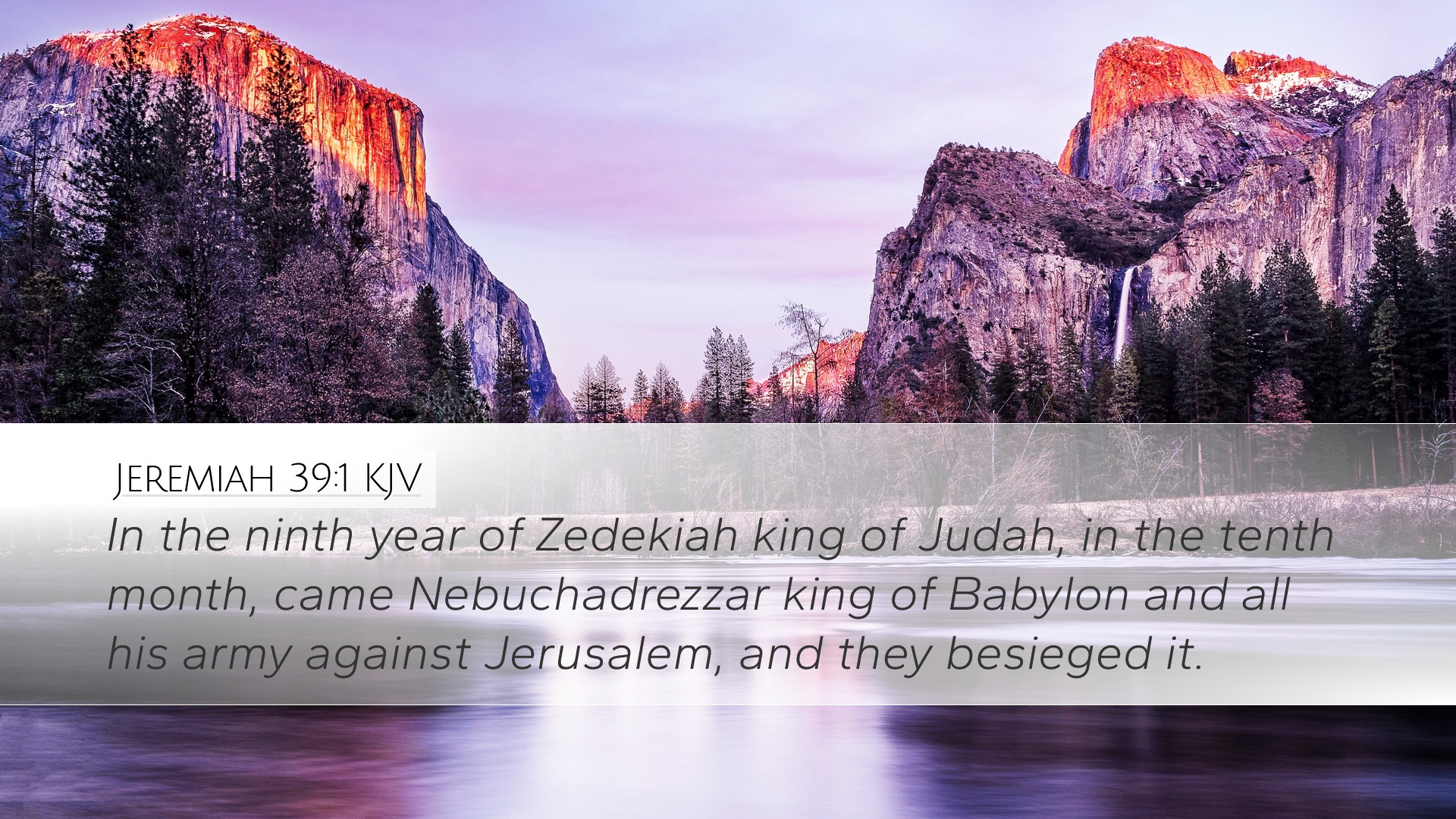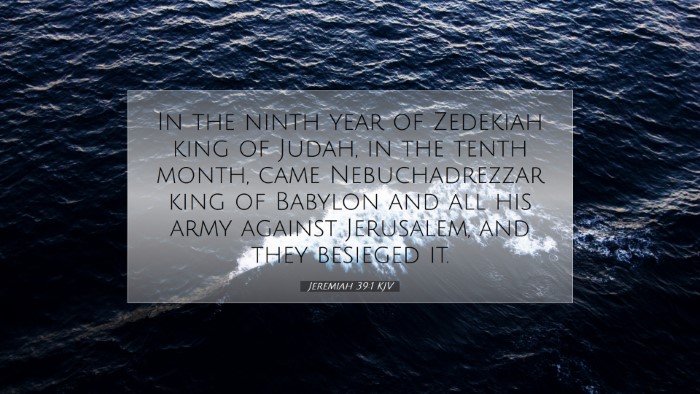Commentary on Jeremiah 39:1
Introduction: The verse Jeremiah 39:1 serves as a significant backdrop to the prophecy and historical reality of Jerusalem's fall. Central to the narratives within the Book of Jeremiah, it highlights both the immediacy and the unfolding of God’s judgment against Jerusalem, providing rich insights into divine sovereignty, human agency, and the nature of prophetic ministry.
Text of Jeremiah 39:1
“In the ninth year of Zedekiah king of Judah, in the tenth month, Nebuchadnezzar king of Babylon, and all his army, came against Jerusalem, and besieged it.”
Historical Context
Setting in Time: This verse places us at a critical juncture in Jewish history. The ninth year of Zedekiah's reign corresponds to the final stages of the Babylonian siege, setting the stage for the catastrophic fall of Jerusalem.
- Zedekiah's Leadership: As the last king of Judah, Zedekiah’s rule was marked by political intrigue, a lack of faith, and eventual despair. His decisions led to dire consequences for the nation.
- The Babylonians' Strategy: Nebuchadnezzar's siege reflects a strategic military operation, showcasing the power dynamics of the ancient Near East and the fulfillment of prophetic declarations against Judah.
Theological Insights
Divine Judgment: This passage elucidates the theme of divine judgment faced by Judah due to their persistent disobedience and idolatry. The siege symbolizes God’s active role in providential history, bringing about justice.
- God’s Sovereignty: Though the events appear grim, they resonate with the overarching narrative of God’s sovereignty. He uses nations like Babylon as instruments of His will, emphasizing that no power exists outside of His control.
- Call to Repentance: This judgment was preceded by numerous calls for repentance through the prophets, highlighting God's desire for restoration rather than destruction. Jeremiah's messages persisted in a time when decline seemed inevitable.
Perspective from Commentators
Matthew Henry
Henry's exposition provides a comprehensive view, noting that The fall of Jerusalem stands as a warning to all nations. His interpretation emphasizes the consequences of turning from God's ordinances and highlights how God’s patience had been exhausted.
Albert Barnes
Barnes observes the historical significance of the siege, emphasizing that it epitomizes the culmination of God's judgments. His commentary stresses that this event fulfilled prior prophecies given through Jeremiah, serving to confirm God’s word as true and steadfast.
Adam Clarke
Clarke provides a detailed analysis, stressing the importance of understanding the socio-political climate of Jerusalem at this time. He notes that the siege not only brought physical destruction but also acted as a spiritual reckoning, leading to eventual reflection on their socio-religious practices.
Application for Contemporary Readers
This verse holds profound implications for modern readers, particularly for pastors, students, and scholars:
- Understanding God's Discipline: Just as Judah faced consequences for their actions, contemporary believers are reminded of God’s fatherly discipline—calling for self-examination and repentance.
- Historical Reflection: The fall of Jerusalem is a call to scholars and theologians to engage with history. This verse acts as a historical anchor for understanding the broader narrative of redemption in Scripture.
- Expecting God's Faithfulness: Despite the bleakness of this passage, it hints at future restoration, reminding leaders and congregants alike of God’s unwavering commitment to His promises.
Conclusion
Jeremiah 39:1 serves as a rich resource for reflection on God’s justice and mercy, the nature of prophetic witness, and the historical realities that shaped biblical narratives. Deep engagement with this text encourages a holistic approach to Scripture, one that combines historical understanding with theological reflection, ultimately guiding us toward a deeper relationship with God.


